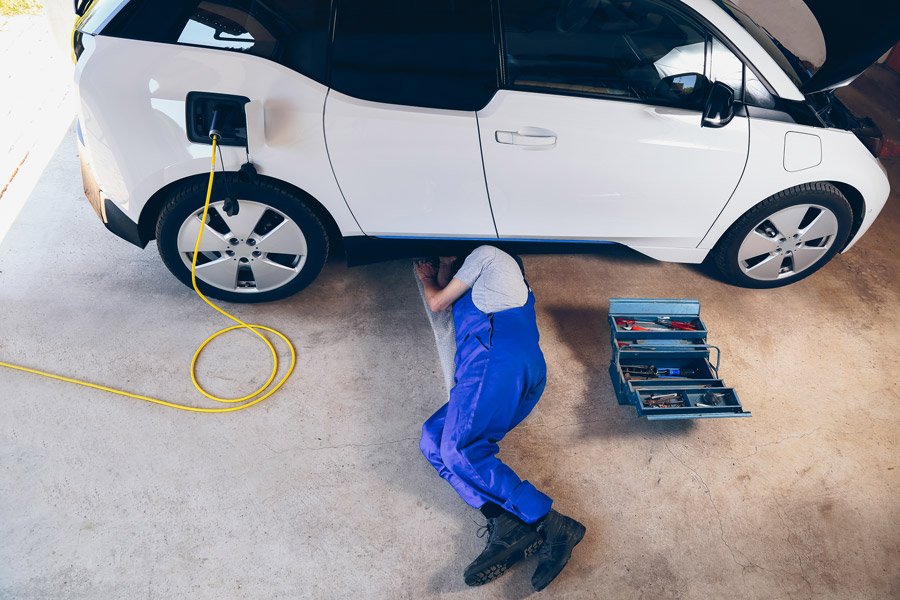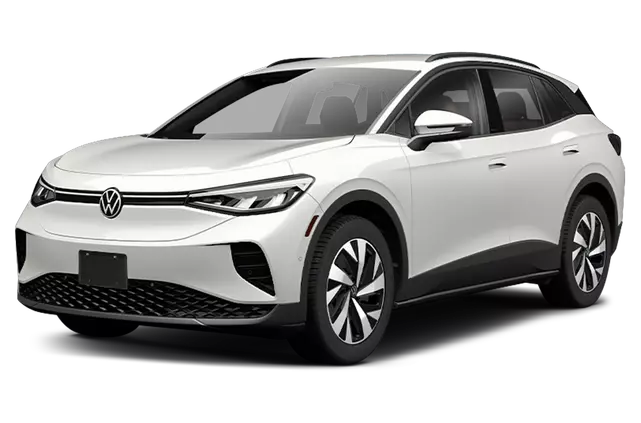Electric vehicles have gained recognition for their simplified drivetrain compared to traditional petrol and diesel cars. This inherent simplicity has led to the assumption that maintenance and repairs of electric vehicles would be significantly cheaper in certain cases, potentially resulting in overall cost savings.
Unlike ICE cars, EVs do not require engine oil circulation, pressurization, cooling, or regular oil changes. This absence of engine oil-related maintenance tasks suggests that EV owners may experience lower overall maintenance costs than their ICE counterparts. The simplified design and reduced need for routine servicing contribute to the perception that electric vehicles can be more cost-effective to maintain in the long run.
Featured Image credit: herthundbuss
With their advanced technology and unique components, many wonder if EVs are expensive to repair compared to traditional gasoline-powered cars.
The Complex Nature of EV Repairs
Electric vehicles fundamentally differ from conventional ones because they rely on an intricate system of batteries, motors, and power electronics. This complexity can make repairs more challenging compared to internal combustion engine (ICE) vehicles. Additionally, EV components such as lithium-ion batteries require specialized knowledge and training for proper handling.
Higher Initial Costs of EV Repair vs. Lower Operating Costs
One important aspect that needs consideration when discussing the cost of repairing electric vehicles is the higher initial purchase price than ICE cars. On average, EVs tend to be pricier due to the advanced technology used in manufacturing. However, it’s crucial not only to focus solely on upfront costs but also to consider long-term savings associated with operating an EV.
EV owners benefit from lower fuel costs since electricity prices are generally lower than gasoline or diesel per mile traveled. Moreover, routine maintenance requirements for electric cars are often less frequent and simpler than those for ICE vehicles because there are fewer moving parts prone to wear and tear.
EV Warranty Coverage
Another factor that contributes significantly towards reducing potential repair costs for electric vehicle owners is warranty coverage provided by manufacturers. Most automakers offer extended warranties specifically tailored for battery packs within their EV models since these components are important in performance and longevity.
Typically ranging between 8-10 years or a specific mileage limit (e.g., 100k miles), battery warranties provide peace of mind, knowing that the manufacturer will cover any defects or failures during this period. This significantly reduces the financial burden on EV owners, as battery replacements can be one of the most expensive repair costs for electric vehicles.
Cost Comparison: Common Electric Vehicle Repairs
When comparing specific repairs between electric and gasoline-powered cars, it is essential to consider both similarities and differences. Some components like suspension systems, brakes, and tires are similar in both types of vehicles and may have comparable repair costs.
However, certain repairs related to EV-specific parts might be more expensive due to their specialized nature. For instance, replacing an electric vehicle’s motor or power electronics system can involve higher labor charges since technicians need additional training and expertise to handle these components effectively.
On the other hand, maintenance tasks such as oil changes or transmission fluid replacements required in conventional cars do not apply to EVs. Consequently, this eliminates associated expenses in maintaining those systems found in ICE vehicles.
Third-Party Repair Options for EV’s
As technology advances and the market for electric vehicles expands further, third-party repair options are becoming more widely available. Initially dominated by authorized dealerships or service centers affiliated with manufacturers, there is now a growing network of independent mechanics specializing in repairing EVs.
These independent shops often offer competitive pricing compared to dealership rates while still providing high-quality services. As a result, consumers have greater flexibility when choosing where they want their electric vehicle repaired without compromising on quality or warranty coverage if applicable.
Availability of EV Parts
One concern with less common models or older generations of electric vehicles is the availability of replacement parts. Since some components in EVs differ from those in traditional cars (such as batteries), finding compatible parts may require additional effort or incur higher costs initially.
However, as demand for EVs continues to rise globally and manufacturers invest heavily in research and development efforts for these vehicles’ components over time, part availability will likely improve steadily while reducing overall prices along with it.
Final Thoughts
While electric vehicles may have higher upfront costs compared to traditional gasoline-powered cars, it is essential to consider the long-term savings associated with EV ownership. Lower operating and maintenance costs can offset the initial expense over time.
Ultimately, when considering whether electric vehicles are expensive to repair or not, various factors such as warranty coverage, availability of parts, and overall maintenance requirements need careful consideration.
As technology continues to advance and adoption rates increase globally, the cost of repairing electric vehicles will likely continue to decrease over time.


